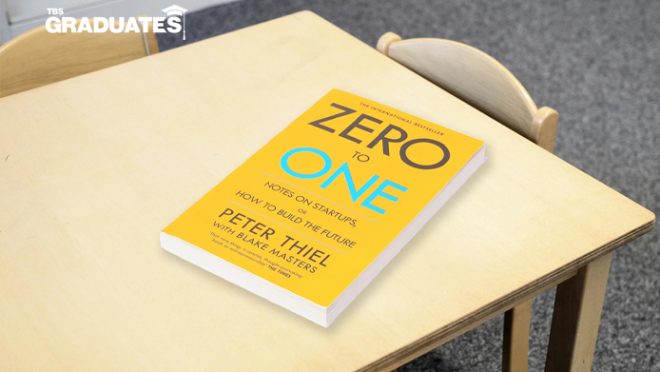Zero to One: A roadmap for young entrepreneurs
Zero to One: A roadmap for young entrepreneurs

Going from 1 to 10, 100, or beyond means refining existing ideas or products, rather than generating entirely new concepts. It’s more about iteration and improvement rather than groundbreaking innovation.
Conversely, going from 0 to 1 means the creation of something entirely new, moving from nonexistence to existence, from a blank slate to a tangible creation. This is the essence of what the book ‘Zero to One’ by Peter Thiel and Blake Masters discusses.
At its core, ‘Zero to One’ urges readers to shift their focus from dynamic progress (going from 1 to n) to transformative leaps (going from 0 to 1). Thiel, a co-founder of PayPal and an early investor in companies like Facebook, shares his unique insights on the nature of progress, emphasizing the importance of building something entirely new and revolutionary.
The book, which appeared from Masters’ class notes on Thiel’s lectures at Stanford, serves as a roadmap for aspiring entrepreneurs, challenging conventional wisdom and encouraging a fresh perspective on creating value.
Thiel challenges the prevalent notion that competition is the key driver of innovation, suggesting instead that monopolies—when approached and understood correctly—can be the ultimate reward for innovation.
The authors also introduce the concept of definite optimism, advocating for the belief that the future can be shaped and improved through deliberate actions. They drive the readers to create new markets.
According to them, true innovation arises from uncovering uncharted territories, where competition is minimal.
Another standout perspective of ‘Zero to One’ is its emphasis on the power of contrarian thinking. Thiel encourages entrepreneurs to question conventional wisdom and challenge the current state of things, asserting that breakthroughs often come from unconventional ideas.
The book is filled with anecdotes and case studies that highlight the success stories of companies that dared to think differently, from PayPal to SpaceX.
Keeping technology and its role in shaping the future as a recurring theme, the authors provide a thought-provoking analysis of how innovation and technology intersect to create new opportunities.
On the flipside, critics argue that Thiel’s perspectives may not be universally applicable. His emphasis on the importance of creating monopolies might be viewed as controversial, especially in the context of promoting healthy competition. And it should encourage readers to critically evaluate established norms and question assumptions.
Prior to reading this book, I associated Peter Thiel more with his investing career than his experiences as a founder of PayPal and Palantir. However, ‘Zero to One’ changed my perspective. Thiel’s writing style incorporates historical references, cultural insights and practical advice. Thiel’s optimism about the future of progress and his emphasis on asking the right questions make it a compelling and fascinating read. Whether you’re a startup founder or simply curious about innovation, ‘Zero to One’ offers valuable insights that can shape your thinking and approach to business.


